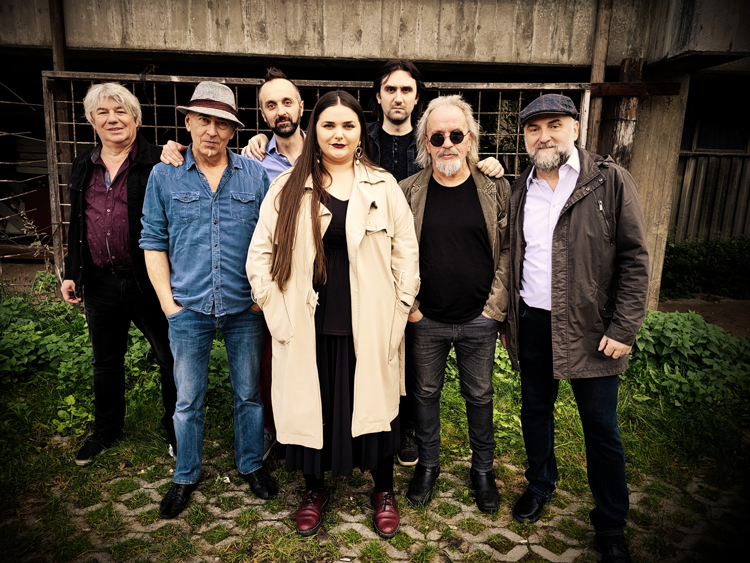Sevdah is a traditional style of music originating from Bosnia and Herzegovina. It is characterized by its melancholic and introspective lyrics, which often deal with themes of love, loss, and longing. Sevdah music is considered to be one of the richest and most diverse cultural expressions of the Bosnian people. It has been influenced by a number of different musical styles and traditions, including Ottoman Turkish music, Balkan folk music, and classical European music.
Sevdah music emerged in the late 19th and early 20th centuries and was initially performed by professional musicians known as sevdalinka singers. These singers would typically perform in cafés and taverns, and their songs were regularly used to express personal emotions and experiences. Over time, sevdah music became more widespread and began to influence other musical styles in the region.
One of the most distinctive features of sevdah music was the use of the saz, a type of lute. This instrument provided the foundation for sevdah songs and gave the music its characteristic sound. However, the saz has been replaced by the guitar in recent times. Other instruments used in sevdah music include the accordion, the violin, and the double bass. The melodies in sevdah music are typically complex and syncopated, and the lyrics are often poetic and highly metaphorical.
In addition to its rich musical tradition, sevdah music is also significant for its cultural and historical significance. The songs frequently reflect the experiences of the Bosnian people and their struggle for independence and cultural identity. They provide a window into the history and culture of Bosnia and Herzegovina and are an important part of the country’s national heritage.
Despite its importance, sevdah music has faced numerous challenges in recent years, including the destruction of cultural landmarks during the Bosnian War and the difficulty in preserving the traditions and knowledge necessary to keep the music alive. However, a new generation of musicians and enthusiasts has emerged to keep the sevdah tradition alive, and the music continues to be performed and enjoyed by people both in Bosnia and Herzegovina and around the world.
There are many talented sevdah performers who have contributed to the preservation and popularity of this traditional music genre. Some leading sevdah performers include:
Amira Medunjanin: A renowned singer and performer, Amira Medunjanin is considered one of the leading ambassadors of sevdah music. She has received numerous awards for her contributions to the genre and has performed on stages around the world. More about Amira Medunjanin.
Šaban Bajramović: Also known as the “King of Sevdah,” Šaban Bajramović was a legendary singer and performer who helped popularize sevdah music throughout the Balkans and beyond. More about Šaban Bajramović.
Nihad Alibegović: A pop singer and performer with a distinctive voice, Nihad Alibegović also performs sevdah. He has recorded numerous albums and has been recognized for his contributions to the genre.
Mostar Sevdah Reunion: A Bosnian musical group that has gained widespread recognition and popularity for their performances of traditional sevdah music. Founded in 1997, the group is made up of some leading musicians and performers in Bosnia and Herzegovina. Their music is characterized by its traditional style and use of acoustic instruments such as the guitar, accordion, violin, piano and double bass. More about Mostar Sevdah Reunion.
Halid Bešlić: A talented folk and pop singer and performer, Halid Bešlić is considered one of the most important sevdah musicians of the 20th century. He has recorded numerous albums and has been a major influence on subsequent generations of sevdah performers.
Divanhana: Based in Sarajevo, the band presents new interpretations of traditional Bosnian and Herzegovinian urban music, focusing on the emotional and soulful genre of sevdah. Founded in 2009 by students from the Sarajevo Music Academy, the group combines contemporary instruments such as brass, piano, bass, and drums with traditional accordion and vocals to bring a fresh jazz twist to Sephardic and Middle Eastern elements of sevdalinka. Lead singer Leila Catic’s clear vocals masterfully convey emotions ranging from heartache to playfulness. More about Divanhana.
(headline image: Mostar Sevdah Reunion)



As a Bosnian, I applaud this article. Well written and informative. There are some musical genre nuances with the particular artists you featured, but overall, I think you have very nicely brought forth traditional Bosnian music. Thank you
Concise and informative – hopefully sevdah will soon be inscribed into UNESCO list of intangible heritage.